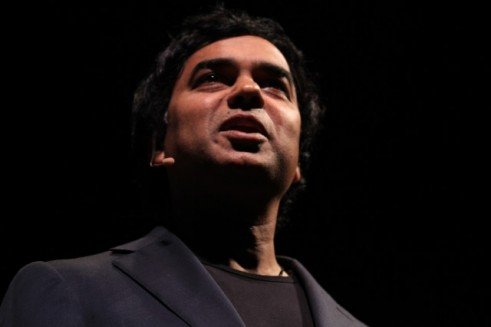The 9 Principles of Innovation at Google
Notes from Gopi Kallayil’s Dreamforce presentation

I recently attended a Dreamforce session titled “The 9 Principles of Innovation at Google” and wanted to share my notes.
1 Innovation comes from everywhere
There is no innovation department at Google. Kallayil shared an example where their algorithm was working with unintended consequences in that searches for “best ways to commit suicide” did in fact list what if felt the best results were.
A medical doctor at Google argued persuasively that although the algorithm may have decided to provide results, Google needed to intervene with human-powered result by providing the 800 number to the suicide prevention hotline. If you now Google anything suicide-related you receive the 800 number for the suicide hotline as the top result. The day the change was made the volume of calls to the hotline went up by 9%.
2 Focus on the user and all else will follow
Provided an example of implementing instant search which saves the user a few microseconds. Executives knew receiving faster results would minimize the amount of time ads were displayed but they went ahead and implemented it because it made for a better user experience.
Also mentioned that although each user is only saving a few microseconds, when you factor the billions of searches a year, it saves the world an immense amount of time at scale. Implementing instant search was also more costly to implement but again it was best for user experience and therefore implemented.
3 Think 10x (ten times) better
This is Larry Page’s mantra. If you want radical revolution at a scale, think of things as 10x and not 10%.
Provided the example of Google Books. When Google’s mission was created to “organize the world’s information and make it universally accessible and useful” it wasn’t to just organize digital information. At the time when Google Books was created as a goal, most of the world’s information was primarily still analog.
4 Bet on technical insights
Google engineers developed a self-driving car as an example. A few engineers read that a couple million accidents car accidents happen a year and felt compelled as engineers to see what they could do to reduce or eliminate those deaths.
They thought if you remove the human it could reduce or eliminate the accidents. They already had services like Google Earth and Maps at their disposal.
5 Ship/launch and iterate
Some organizations only ship products when they are polished or fully ready. At Google, they believe they should develop a first prototype, get feedback, and then based on that feedback iterate to make it better.
Examples: Gmail was in beta for 3 years. Fast is better than slow. The first prototype of Google Glass was developed in 90 minutes.
6 Give employees 20 percent time
Give people freedom in their regular schedule, even when outside of the core job, and they will delight you with what they come up with quite often. They actually didn’t come up with the idea, they borrowed it with what some universities do.
The way it works is you quickly build a prototype and you recruit others to help you with that idea inside of the company.
Products Born from 20% Time:
- Gmail
- Google News
- Google Alerts
- Street View enhancements like the camera trike for narrow alleys
- Galapagos ocean Street View
7 Default to open
Google admits they can’t hire all the “smart” people in the world. They believe if you open up your application to the world you can allow them to help you make their products even better.
A perfect example is Google Maps. They empower people to help them via Google Map Maker to update the maps because the world’s infrastructure is constantly changing each day.
8 Fail well
“There is a belief in the company that if you don’t fail often enough, you’re not trying hard enough… failure is actually a badge of honor.”
There is no stigma attached to failure at Google. Since Larry Page has taken over he has shut down 72 products so they try many things and shut then shut that service down if it doesn’t end up working.
9 Have a mission that matters
If you ask people at Google why they come into the work many will say that their work is helping to change humanity (the world). They are working to level the playing field for information retrieval.
Stephanie Holcomb says:
Great summary, Jeremy! Lots of great ideas that can be implemented personally as well as on a larger scale. Thank you for sharing!